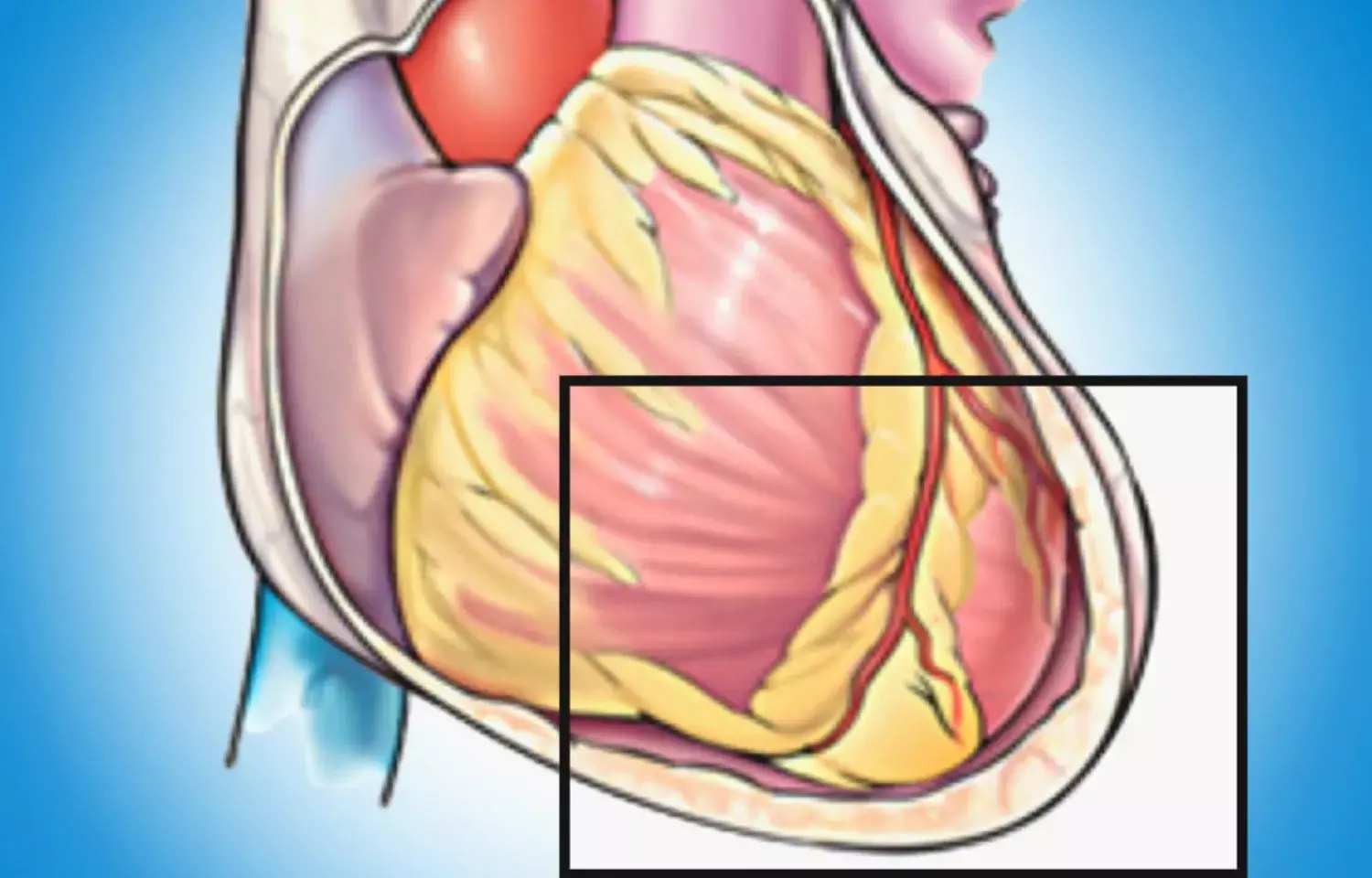- Home
- Medical news & Guidelines
- Anesthesiology
- Cardiology and CTVS
- Critical Care
- Dentistry
- Dermatology
- Diabetes and Endocrinology
- ENT
- Gastroenterology
- Medicine
- Nephrology
- Neurology
- Obstretics-Gynaecology
- Oncology
- Ophthalmology
- Orthopaedics
- Pediatrics-Neonatology
- Psychiatry
- Pulmonology
- Radiology
- Surgery
- Urology
- Laboratory Medicine
- Diet
- Nursing
- Paramedical
- Physiotherapy
- Health news
- Fact Check
- Bone Health Fact Check
- Brain Health Fact Check
- Cancer Related Fact Check
- Child Care Fact Check
- Dental and oral health fact check
- Diabetes and metabolic health fact check
- Diet and Nutrition Fact Check
- Eye and ENT Care Fact Check
- Fitness fact check
- Gut health fact check
- Heart health fact check
- Kidney health fact check
- Medical education fact check
- Men's health fact check
- Respiratory fact check
- Skin and hair care fact check
- Vaccine and Immunization fact check
- Women's health fact check
- AYUSH
- State News
- Andaman and Nicobar Islands
- Andhra Pradesh
- Arunachal Pradesh
- Assam
- Bihar
- Chandigarh
- Chattisgarh
- Dadra and Nagar Haveli
- Daman and Diu
- Delhi
- Goa
- Gujarat
- Haryana
- Himachal Pradesh
- Jammu & Kashmir
- Jharkhand
- Karnataka
- Kerala
- Ladakh
- Lakshadweep
- Madhya Pradesh
- Maharashtra
- Manipur
- Meghalaya
- Mizoram
- Nagaland
- Odisha
- Puducherry
- Punjab
- Rajasthan
- Sikkim
- Tamil Nadu
- Telangana
- Tripura
- Uttar Pradesh
- Uttrakhand
- West Bengal
- Medical Education
- Industry
Idiopathic recurrent pericarditis may be largely driven by interleukin 1 pathway: JAHA

UK: Researchers in a recently published study in the Journal of the American Heart Association have challenged the current concept of idiopathic recurrent pericarditis (IRP). Although, "idiopathic" means "arising spontaneously or from an obscure or unknown cause," which implies that the pathophysiology is not established, and the treatment should remain empirical.
In the study, the authors have proposed that idiopathic recurrent pericarditis may be largely driven by the well‐known interleukin‐1 pathway. They also found that corticosteroid dependence in IRP is tied to chronic noninflammatory pain. Together, this implies autoinflammation in IRP and supports reducing reliance on corticosteroids in its management.
Idiopathic recurrent pericarditis is an orphan disease that is associated with significant morbidity, partly driven by corticosteroid dependence. Colchicine, innate immune modulators, and anti‐interleukin‐1 agents, pioneered in monogenic autoinflammatory diseases, have demonstrated remarkable efficacy in trials. This suggests that autoinflammation may contribute to IRP.
Claire J. Peet, Department of Medical and Molecular Genetics, King's College London, London, United Kingdom, and colleagues characterized the phenotype of patients with IRP and monogenic autoinflammatory diseases and establish whether autoinflammatory disease genes are associated with IRP.
For this purpose, the researchers retrospectively analyzed the medical records of patients with IRP (n=136) and monogenic autoinflammatory diseases (n=1910) attending a national center (London, UK) between 2000 and 2021. 4 genes (MEFV, MVK, NLRP3, TNFRSF1A) were examined by next‐generation sequencing in 128 patients with IRP. The frequency of rare deleterious variants was compared to controls obtained from the Genome Aggregation Database.
The researchers reported the following findings:
- In this cohort of patients with IRP, corticosteroid dependence was common (39/136, 28.7%) and was associated with chronic pain (adjusted odds ratio 2.8).
- IRP frequently manifested with systemic inflammation (raised C‐reactive protein [121/136, 89.0%] and extrapericardial effusions [68/136, 50.0%]).
- Pericarditis was observed in all examined monogenic autoinflammatory diseases (0.4%–3.7% of cases).
- Rare deleterious MEFV variants were more frequent in IRP than in ancestry‐matched controls (allele frequency 9/200 versus 2932/129 200).
"Pericarditis is a feature of interleukin‐1 driven monogenic autoinflammatory diseases and IRP is associated with variants in MEFV, a gene involved in interleukin‐1β processing," wrote the authors. "Also, corticosteroid dependence in IRP was found to be associated with chronic noninflammatory pain."
Reference:
The study titled, "Pericarditis and Autoinflammation: A Clinical and Genetic Analysis of Patients With Idiopathic Recurrent Pericarditis and Monogenic Autoinflammatory Diseases at a National Referral Center," appears in the Journal of the American Heart Association.
Dr Kamal Kant Kohli-MBBS, DTCD- a chest specialist with more than 30 years of practice and a flair for writing clinical articles, Dr Kamal Kant Kohli joined Medical Dialogues as a Chief Editor of Medical News. Besides writing articles, as an editor, he proofreads and verifies all the medical content published on Medical Dialogues including those coming from journals, studies,medical conferences,guidelines etc. Email: drkohli@medicaldialogues.in. Contact no. 011-43720751


